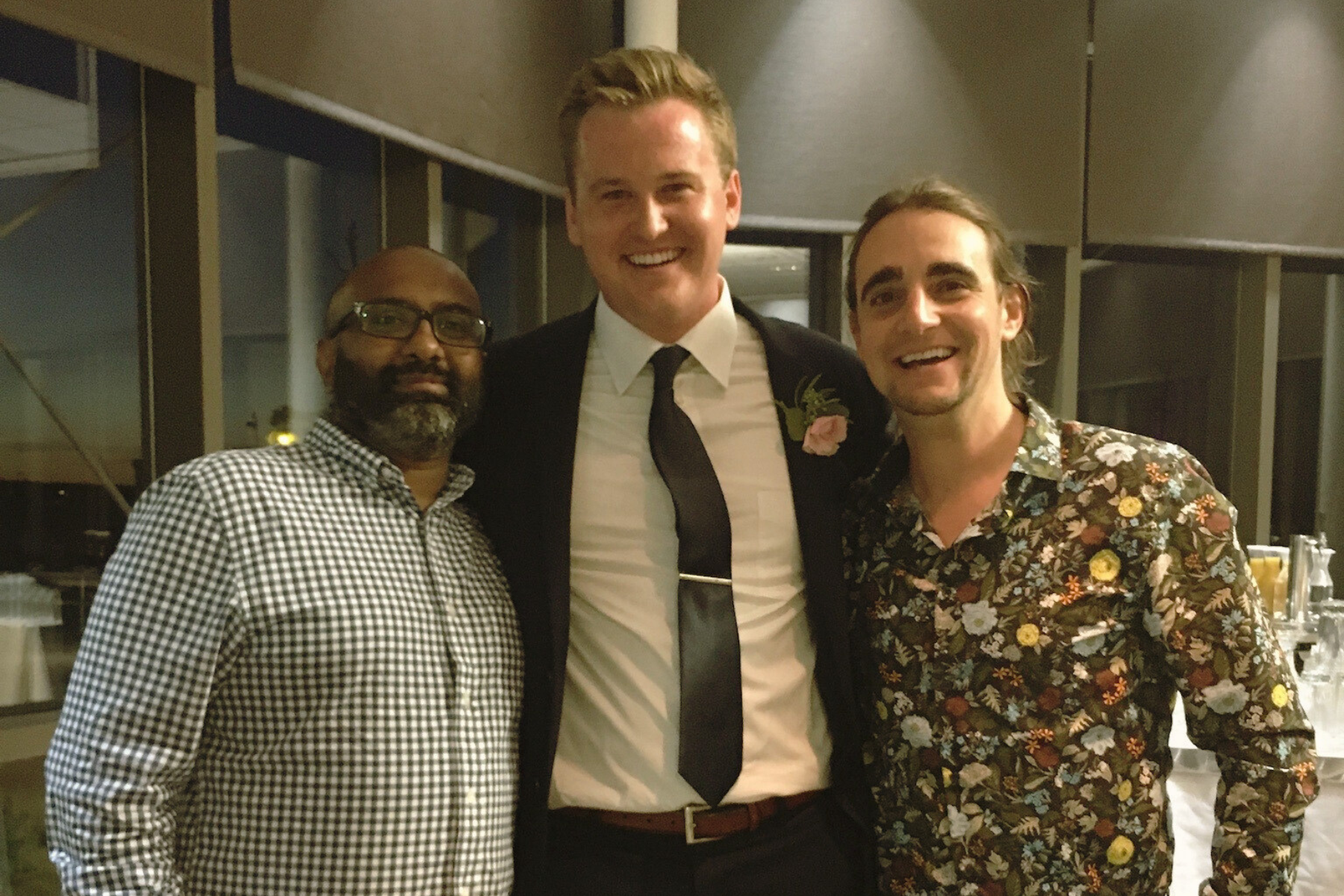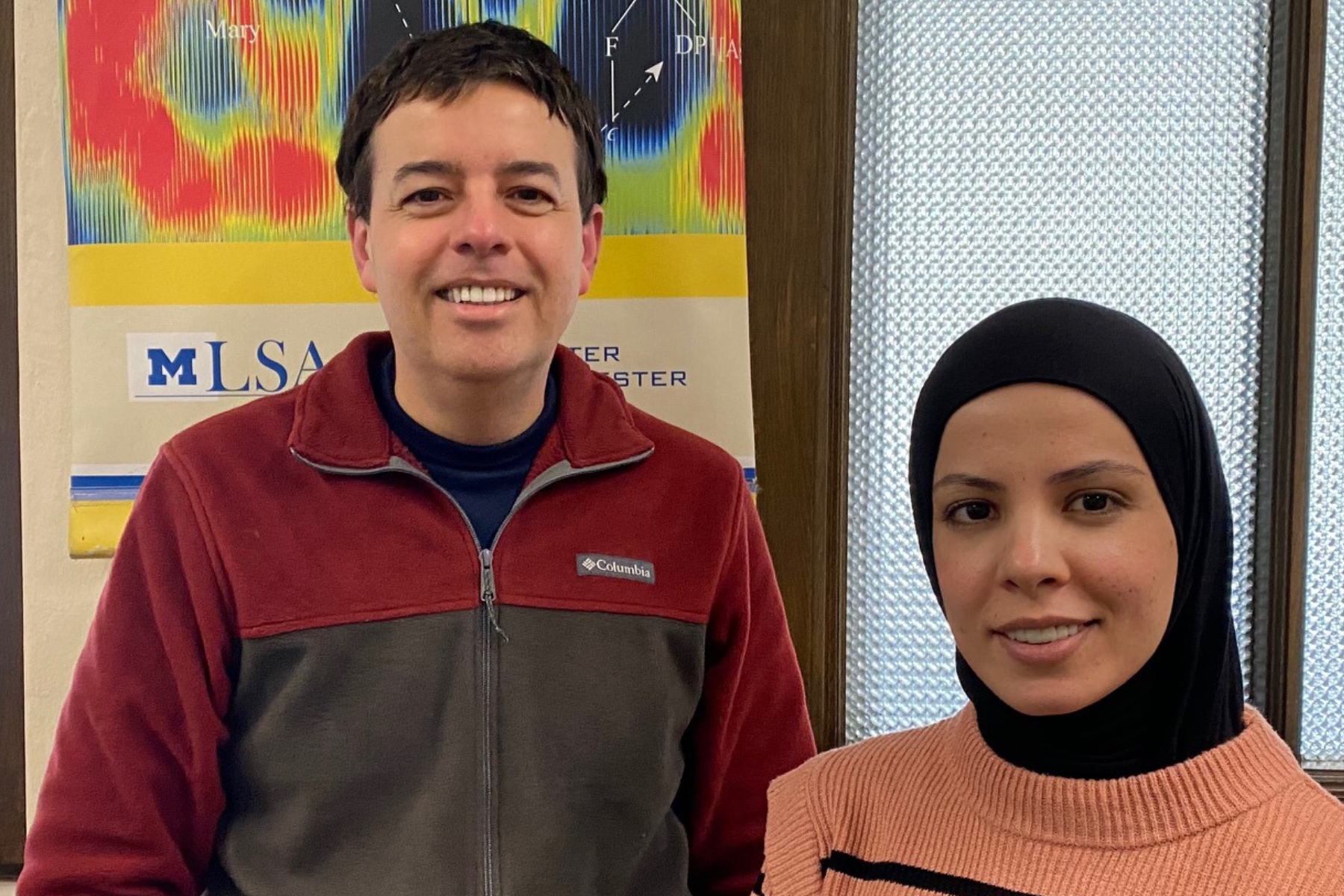Rackham’s faculty committee on mentoring, MORE—Mentoring Others Results in Excellence—provides faculty with effective tools and practices for mentoring graduate students in an effort to improve the graduate school experience for all students.
For many, the mentorship journey starts with a MORE workshop called “Getting Your Mentoring Relationship Off to a Good Start.” This workshop, offered regularly throughout the academic year, invites student and faculty mentoring pairs to develop and document shared expectations for the relationship through a two-way discussion of the most important mentoring elements, including academic and professional goals, and well-being supports.
A Plan for Success
Over 83 percent of Rackham graduate students who have written mentoring plans report those plans to be useful.
“We’ve found the MORE workshop to be so valuable that as the director of the cancer biology graduate program, I’ve mandated it for all student-faculty pairs in the program,” says Costas Lyssiotis.
Lyssiotis is an associate professor of molecular and integrative physiology. He is also the director of the Doctoral Program in Cancer Biology and co-mentor to Rackham student and cancer biology Ph.D. candidate Samuel Kerk.
Kerk’s other co-mentor is Yatrik Shah, Horace W. Davenport Collegiate Professor of Physiology. Shah also sits on the steering committee for the cancer biology graduate program.
“The conversations we had in the MORE workshop were really beneficial and kind of set the tone for the next six years.”
While Lyssiotis and Shah both research cancer cells, Lyssiotis’s focus has been on pancreatic cancer, while Shah primarily researches colorectal cancer.
“Costas and I work well together, and we have complementary and overlapping interests as well,” Shah says. “But it’s the student’s responsibility to get what they can out of a co-mentorship. Sam is a model student in that regard.”
According to Kerk, the MORE workshop played an important role in establishing expectations and the open communication needed for a successful co-mentorship to work.
“I’m physically located in Costas’s lab, which naturally leads to conversations and meetings, but I really did want to make this a true co-mentorship because I obviously valued Yatrik’s scientific work,” Kerk says.
During the workshop, Kerk and Shah developed a plan to ensure strong participation in Shah’s lab through bi-weekly one-on-one meetings and regular lab meeting attendance. Additionally, Lyssiotis, Shah, and Kerk use Slack, an instant messaging platform for professional communications, to stay in communication about their work and resolve questions as they arise.
“The conversations we had in the MORE workshop were really beneficial and kind of set the tone for the next six years,” Kerk says.

Samuel Kerk is a recent cancer biology Ph.D. graduate and was co-mentored by Costas Lyssiotis, associate professor of molecular and integrative physiology and director of the Doctoral Program in Cancer Biology, and Yatrik Shah, Horace W. Davenport Collegiate Professor of Physiology. The trio smile for the camera at Kerk’s wedding in 2019.
Inspiration and Motivation
Aya Halabi is a first year Rackham doctoral student studying linguistics, with a primary focus on syntax and a secondary interest in bilingualism. When Halabi entered her program, she was also interested in experimental neurolinguistics as a research area. After taking a class with her mentor, Acrisio Pires, professor of linguistics and department chair, she expanded her focus of interest.
“Acrisio never said, ‘You need to do it differently.’ Instead, he said, ‘In whatever capacity, I will help you. I will help you to succeed in this department,’” Halabi says.
Creating space for Halabi to expand and shift focus and discover her path on her own terms was meaningful to her—and part of Pires’s approach to mentorship.
“I encourage people to consider possibilities and just really take up the things that they are passionate about,” Pires says. “Any person working through graduate school is already a professional. They have complete independence about the path that they choose to pursue and the kind of work they do.”
The groundwork for Halabi’s research plan—and the open lines of communication she enjoyed with Pires around it—was established during a MORE mentoring workshop.
“During the workshop, I asked him, ‘Will you be comfortable working with any theoretical framework that I choose?’ And he said, ‘Yes, as long as you’re going to be happy with it.’” Halabi says. “I never felt pushed, but I felt inspired and motivated.”

Aya Halabi, a first year Ph.D. student, is mentored by Acriso Pires, a professor and chair of the U-M Department of Linguistics.
Flexibility is Key
While the template for a successful mentorship plan is the same for all student-faculty pairs, the ways the individual plans are enacted are specific to the needs, interests, and goals of each student and their faculty mentor.
“I don’t think you can mentor every student exactly the same, and you shouldn’t do that,” Shah says. “And every student has different expectations and requirements for what they want out of a mentorship.”
Lyssiotis adds that communication methods and meeting frequency preferences will vary from person to person. “If you treat each student the same way, you are setting up expectations for failure. As long as you’re communicating it’s fine, but it’s important to establish an effective route for communication for both parties.”
For Pires, a customized approach to mentorship follows the research interests and needs of the student and usually evolves over time. “The mentorship understanding is an evolving dynamic plan that, in a way, is taking shape every day as we go.”
A Holistic Approach
Successful mentorship welcomes student needs beyond academics and professional practice. During the MORE workshop, student-faculty pairs consider how to factor well-being into the mentorship plan.
“In addition to finding a person with overlapping research interests, which is sort of given academically, it’s important for students to find a person who cares.”
For Kerk, the lab culture that his co-mentors created was one of the most important ways that his well-being was cared for during his graduate school experience.
“They don’t demand a lot in terms of ‘you have to be here from 7:00 a.m. to 7:00 p.m.’ They just work really hard. And that inspires everyone else to do the same. They are leading by example, and I know those are the lessons I’m trying to take with me into my postdoc and hopefully into my own lab someday,” Kerk says.
The care for her well-being began even before Halabi set foot on campus. “When I was admitted and confirmed the offer, Acrisio and I connected more during the summer. He made sure that I had everything figured out in terms of visas and moving to Ann Arbor,” she says.
“In addition to finding a person with overlapping research interests, which is sort of given academically, it’s important for students to find a person who cares.”
Learn more about the MORE Committee and Rackham mentorship programs.

